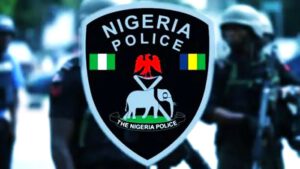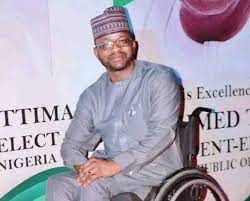In Kano, Governor Umar Ganduje closed all land boundaries and the state’s airport. In Delta, Governor Ifeanyi Okowa shut all routes leading in and out of the state. Governor Nyesom Wike of Rivers State halted all land, sea and air traffic.
As the coronavirus pandemic makes rapid inroads into Nigeria’s vast population and President Muhammadu Buhari’s whereabouts become increasingly fuzzy, Nigerian governors are stepping up with what they deem necessary to keep their people safe. In doing so, they are also brazenly exerting presidential authority, filling up for a clear lack of political leadership in Abuja.
As of March 28, with 81 cases confirmed, Mr Buhari has not declared an emergency to restrict all or some forms of human movement — amongst other drastic initiatives as may be necessary to contain the virus — across the country, despite calls for him to do so before it becomes too late.
The Nigerian Constitution accords the federal government absolute authority on land, air and water transportation under items three, 36 and 63 of the exclusive legislative list — a glossary of constitutional authorities that could only be codified by the National Assembly for presidential implementation.
Yet, at least four Nigerian states have now instituted far-reaching restrictions on human and economic activities within their respective domains, with additional states predicted to take similar cues in the coming days.
With confirmed coronavirus cases projected to rise in the coming weeks, the emergency measures so far adopted by governors to combat the pandemic has varied from state to state. But, they all share a common flaw: the lack of coordination from a central authority.
‘Drastic measures’
Mr Wike, who has led Rivers since 2015, appeared the first of Nigeria’s 36 governors to impose a ban on road and water traffic within his domain, thereby crippling interstate commerce.
“All land and sea borders will be closed. Vehicular movements in an out of the state have been banned. In essence no vehicle will leave Rivers State for any other state and no vehicle will be allowed to enter the state,” the governor said in a statewide broadcast on March 25.
The governor said the directive, which took effect on March 26, was issued after a meeting of the state security council, which includes representatives of the police, military and other federal authorities that fall under the control of the president.
“Security agencies have been empowered to strictly enforce this directive,” he said. “There will be no room for sacred cows because the virus is no respecter of persons.”
Although Mr Wike acknowledged he lacked powers to prohibit air traffic, he maintained that passengers who fly into Port Harcourt would not be allowed to leave the airport.
“The situation we are facing requires drastic measures because coronavirus has ravaged many countries,” Mr Wike said.
Shortly after Mr Wike’s announcement on Wednesday morning, Mr Ganduje imposed similar measures in Kano. Even though Kano has yet to confirm any COVID-19 infection, the governor, nonetheless, banned all transport buses from entering the state, citing the disease.
“The council also note that while the state is yet to record any single case of an outbreak, the resolution became necessary to ensure that the virus does not find its way to Kano State,” he said.
On March 26, Mr Okowa, in a statewide broadcast to Delta residents, said he had ordered the closure of all land routes across the state.
From March 27, the airport in Asaba, the state capital, will be “closed to traffic,” Mr Okowa said, while “all land borders into and out of Delta State are to be shut” effective March 29.
The governor said the decision “was not taken lightly” but only came after a “thorough consultations with experts,” the governor said, urging citizens to “adjust to the new normal.”
Ebonyi, Anambra, Jigawa and Akwa Ibom have also instituted one form of restriction on land transportation or another within the past two days.
‘Sensible but scary’
Nigeria has recorded a few number of disease outbreaks in the past, but, like most of the world, has never been assailed with anything as disruptive as the raging COVID-19, which was first reported in China last November.
Besides Lassa fever and monkey pox, the most recent nationwide outbreak was the Ebola, a hemorrhagic fever that devastated West Africa in 2014. The disease was reported in Nigeria, but was quickly traced and arrested with negligible disruption to social and economic wellbeing of the citizens.
“With coronavirus pandemic, state and federal authorities have a sensible reason to panic and impose draconian measures deemed critical to keeping everyone from being infected,” a lawyer, Abdul Mahmud, told PREMIUM TIMES. “But the pronouncements coming from the Nigerian governors, most of them without any deference to the president or existing laws, are scary.”
Mr Mahmud said Nigeria has had a quarantine statute in place for decades, and governors are refusing to invoke it because they wanted to circumvent its responsibility.
“The Quarantine Act of 1926 permits governors to take necessary measures to keep residents safe in the absence of any presidential pronouncement,” Mr Mahmud said. “But it also required that residents who are locked at home must be fed by the government, which many state governors are reluctant to do.”
Amongst the governors who have announced measures to keep people at home to enforce the highly recommended social distancing approach against coronavirus, only Governor Nasir El-Rufai has invoked the Quarantine Act in Kaduna State.
Mr El-Rufai in his order said all residents must stay at home and state officials would make food available. Rather than shut all routes in and out of Kaduna, the governor allowed vehicular movement of vehicles on federal trunk roads, but said drivers would be checked to ensure they’re not bringing virus to the state.
“The approach by the Kaduna governor is the most commendable implementation of the provisions of the Quarantine Act because it was carried out without usurpation of presidential powers,” Mr Mahmud said, adding that all governors should immediately take a cue.
“You cannot take such painful measures without legal instruments that would define how law enforcement officers must behave,” Mr Mahmud said. “It would be counterproductive.”
Mr Mahmud said although the Quarantine Act allowed governors to lock down their state boundaries, it cannot override the Constitution.
“The Quarantine Act must be exercised within the confines of the Constitution,” he said. “What the governors are doing is clearly unconstitutional powers. They are irresponsible and dangerous.”
Inibehe Effiong, another rights activist and legal expert in Lagos, said the governors should have issued their directives based on the Quarantine Act or pass a new law as it was done in the United Kingdom with the Coronavirus Act of 2020.
“No responsible or serious country disregards the rule of law,” Mr Effiong said.
“Survival of mankind”
Media aides to some of the governors told insidesources magazine that legal niceties did not weigh heavily on their action.
“These are tough times that require tough measures so that the virus does not transmit,” Simeon Nwakaudu, a spokesperson for Mr Wike, told insidesources magazine. “These things are done for the health of Rivers State and other Nigerians.”



